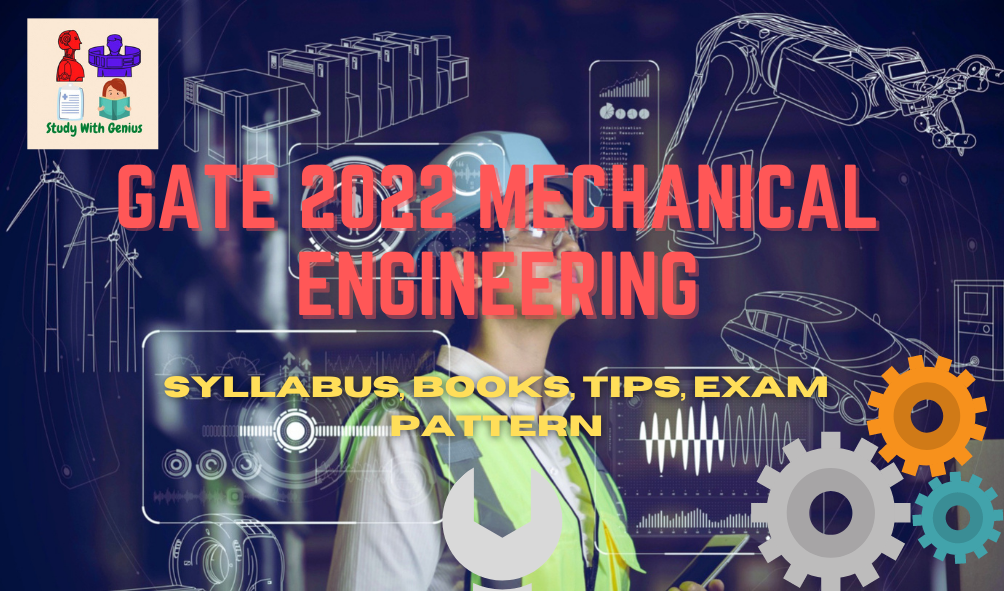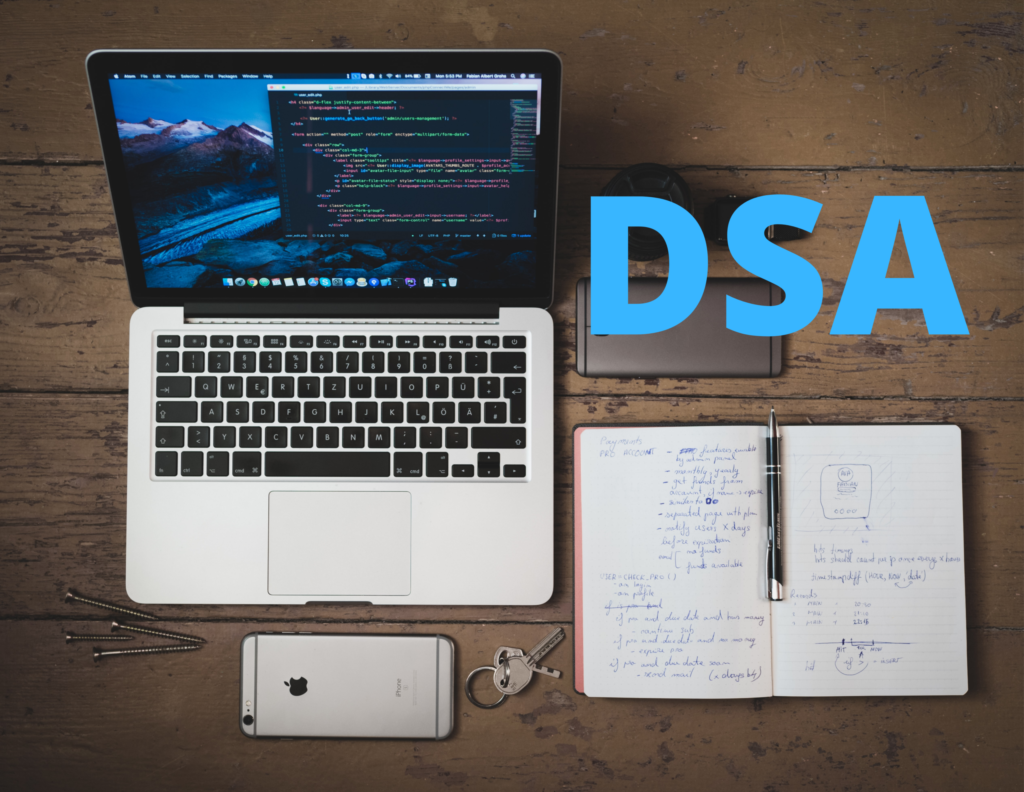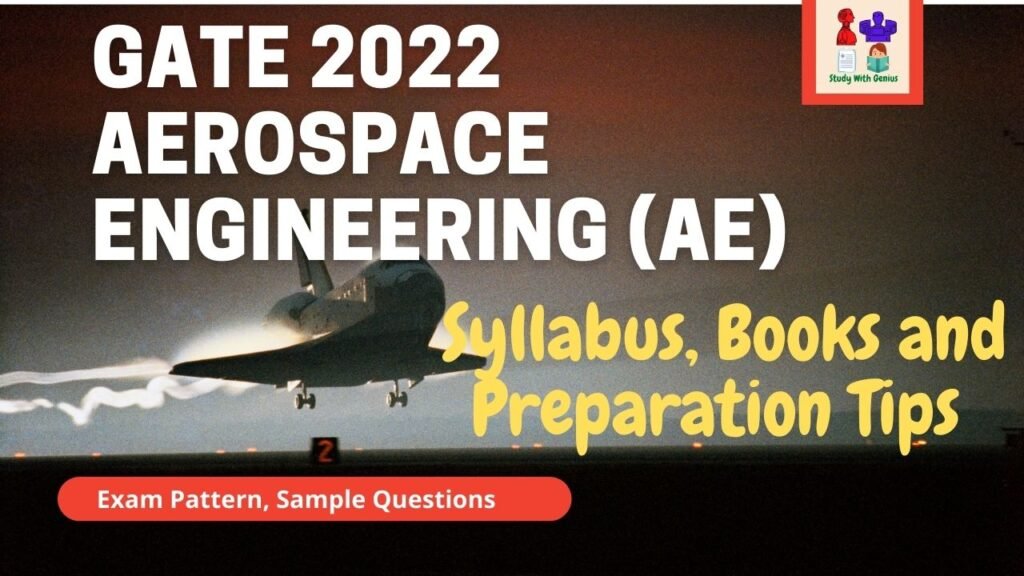GATE 2022 Syllabus Mechanical Engineering(ME) | Exam pattern, Tips, Books

The GATE exam is a joint entrance exam held by IISC Bangalore and the seven IITs. Every year, around 8.5 lakh candidates sit for the exam to get admission to NITs, IIITs, IITs, and CFITs’ M.E/ M.Tech / PhD programmes. GATE also serves as a recruiting and fellowship platform for public sector organisations. Applicants are typically concerned about their exam preparation due to the high level of competition in the exam and the fact that Mechanical Engineering (ME) is one of the most popular papers among candidates. As a result, we get a lot of questions on how to prepare for the GATE 2022 Mechanical Engineering Paper, such as what areas to focus on, which books to read, and so on. GATE 2022 Syllabus
GATE 2022 Mechanical Engineering(ME) Syllabus
Section 1: Engineering Mathematics
Linear Algebra:
Matrix algebra, systems of linear equations, eigenvalues and eigenvectors.
Calculus:
Functions of single variable, limit, continuity and differentiability, mean value theorems, indeterminate forms; evaluation of definite and improper integrals; double and triple integrals; partial derivatives, total derivative, Taylor series (in one and two variables), maxima and minima, Fourier series; gradient, divergence and curl, vector identities, directional derivatives, line, surface and volume integrals, applications of Gauss, Stokes and Green’s theorems.
Differential equations:
First order equations (linear and nonlinear); higher order linear differential equations with constant coefficients; Euler-Cauchy equation; initial and boundary value problems; Laplace transforms; solutions of heat, wave and Laplace’s equations.
Complex variables:
Analytic functions; Cauchy-Riemann equations; Cauchy’s integral theorem and integral formula; Taylor and Laurent series.
Probability and Statistics:
Definitions of probability, sampling theorems, conditional probability; mean, median, mode and standard deviation; random variables, binomial, Poisson and normal distributions.
Numerical Methods:
Numerical solutions of linear and non-linear algebraic equations; integration by trapezoidal
and Simpson’s rules; single and multi-step methods for differential equations
Section 2: Applied Mechanics and Design
Engineering Mechanics:
Free-body diagrams and equilibrium; friction and its applications including rolling friction, belt-pulley, brakes, clutches, screw jack, wedge, vehicles, etc.; trusses and frames; virtual work;
kinematics and dynamics of rigid bodies in plane motion; impulse and momentum (linear and angular) and energy formulations; Lagrange’s equation.
Mechanics of Materials:
Stress and strain, elastic constants, Poisson’s ratio; Mohr’s circle for plane stress and plane strain; thin cylinders; shear force and bending moment diagrams; bending and shear stresses; concept of shear centre; deflection of beams; torsion of circular shafts; Euler’s theory of columns; energy methods; thermal stresses; strain gauges and rosettes; testing of materials with universal testing machine; testing of hardness and impact strength.
Theory of Machines:
Displacement, velocity and acceleration analysis of plane mechanisms; dynamic analysis of linkages; cams; gears and gear trains; flywheels and governors; balancing of reciprocating and rotating masses; gyroscope.
Vibrations:
Free and forced vibration of single degree of freedom systems, effect of damping; vibration isolation; resonance; critical speeds of shafts.
Machine Design:
Design for static and dynamic loading; failure theories; fatigue strength and the S-N diagram;
principles of the design of machine elements such as bolted, riveted and welded joints; shafts, gears, rolling and sliding contact bearings, brakes and clutches, springs.
Section 3: Fluid Mechanics and Thermal Sciences
Fluid Mechanics:
Fluid properties; fluid statics, forces on submerged bodies, stability of floating bodies; control-volume analysis of mass, momentum and energy; fluid acceleration; differential equations of continuity and momentum; Bernoulli’s equation; dimensional analysis; viscous flow of incompressible fluids, boundary layer, elementary turbulent flow, flow through pipes, head losses in pipes, bends and fittings; basics of compressible fluid flow.
Heat-Transfer:
Modes of heat transfer; one dimensional heat conduction, resistance concept and electrical
analogy, heat transfer through fins; unsteady heat conduction, lumped parameter system, Heisler’s charts; thermal boundary layer, dimensionless parameters in free and forced convective heat transfer, heat transfer correlations for flow over flat plates and through pipes, effect of turbulence; heat exchanger performance, LMTD and NTU methods; radiative heat transfer, Stefan- Boltzmann law, Wien’s displacement law, black and grey surfaces, view factors, radiation network analysis.
Thermodynamics:
Thermodynamic systems and processes; properties of pure substances, behavior of ideal and real gases; zeroth and first laws of thermodynamics, calculation of work and heat in various processes; second law of thermodynamics; thermodynamic property charts and tables, availability and irreversibility; thermodynamic relations.
Applications:
Power Engineering: Air and gas compressors; vapour and gas power cycles, concepts of regeneration and reheat. I.C. Engines: Air-standard Otto, Diesel and dual cycles. Refrigeration and air-conditioning: Vapour and gas refrigeration and heat pump cycles; properties of moist air, psychrometric chart, basic psychrometric processes. Turbomachinery: Impulse and reaction principles, velocity diagrams, Pelton-wheel, Francis and Kaplan turbines; steam and gas turbines.
Section 4: Materials, Manufacturing and Industrial Engineering
Engineering Materials:
Structure and properties of engineering materials, phase diagrams, heat treatment, stress-strain diagrams for engineering materials.
Casting, Forming and Joining Processes:
Different types of castings, design of patterns, molds and cores; solidification and cooling; riser and gating design. Plastic deformation and yield criteria; fundamentals of hot and
cold working processes; load estimation for bulk (forging, rolling, extrusion, drawing) and sheet (shearing, deep drawing, bending) metal forming processes; principles of powder metallurgy. Principles of welding, brazing, soldering and adhesive bonding.
Machining and Machine Tool Operations:
Mechanics of machining; basic machine tools; single and multi-point cutting tools, tool geometry and materials, tool life and wear; economics of machining; principles of non-traditional machining processes; principles of work holding, jigs and fixtures; abrasive machining processes; NC/CNC machines and CNC programming.
Metrology and Inspection:
Limits, fits and tolerances; linear and angular measurements; comparators; interferometry; form and finish measurement; alignment and testing methods; tolerance analysis in manufacturing and assembly; concepts of coordinate-measuring machine (CMM).
Computer Integrated Manufacturing:
Basic concepts of CAD/CAM and their integration tools; additive manufacturing.
Production Planning and Control: Forecasting models, aggregate production planning, scheduling, materials requirement planning; lean manufacturing.
Inventory Control:
Deterministic models; safety stock inventory control systems.
Operations Research:
Linear programming, simplex method, transportation, assignment, network flow models,
simple queuing models, PERT and CPM.
GATE Mechanical Engineering: Weightage
| Section | 1 Mark | 2 Mark | No.of Ques |
|---|---|---|---|
| Engineering Mathematics | 5 | 4 | 9 |
| Engineering Mechanics | 0 | 2 | 2 |
| Strength of Materials | 5 | 4 | 9 |
| Design of Machine Elements | 0 | 1 | 1 |
| Theory of Machines | 1 | 2 | 3 |
| Vibrations | 0 | 1 | 1 |
| Fluid mechanics | 4 | 3 | 7 |
| Thermal Science | 5 | 4 | 9 |
| Heat Transfer | 1 | 1 | 2 |
| Manufacturing Science | 4 | 6 | 10 |
| Industrial Engineering | 0 | 2 | 2 |
| Verbal Ability | 3 | 2 | 5 |
| Numerical Ability | 2 | 3 | 5 |
GATE 2022 EE Exam Pattern
- Exam Mode: Online
- Duration: 3 hours
- Types of questions: MCQs and NAT
- Sections: 3 sections – General Aptitude, Mathematics and Subject-based
- Total questions: 65 questions
- Total marks: 100 marks
- Negative Marking: For MCQs only
| Section | Total Marks |
|---|---|
| General Aptitude | 15% of the total marks |
| Engineering Mathematics | 13% of the total marks |
| Subject-Based (ME) | 72% of the total marks |
| Type of question | Negative marking for wrong answer |
|---|---|
| MCQs | 1/3 for 1 mark questions2/3 for 2 marks questions |
| NATs | No negative marking |
GATE Mechanical Engineering: Section Wise Books
| GATE Preparation Books for Mechanical Engineering | Author |
|---|---|
| Mechanical Vibration | GK Grover |
| Design Of Machine Elements | VB Bhandari |
| Engineering Mechanics | SS Bhavikatti |
| Fluid Mechanics | RK Bansal |
| Heat & Mass Transfer | PK Nag |
| Engineering Thermodynamics | Cengel & Boles |
| Internal Combustion Engine | V Ganesan |
| Refrigeration & Air Conditioning | CP Arora |
| Material Science | UC Jindal |
| Production Engineering | Amitabh Ghosh |
| Industrial Engineering | OP Khanna |
GATE 2022 ME Prepatarion Tips
1. Solving Practice Papers
- Solve practise papers on a daily basis to obtain a better understanding of the exam pattern, question types, difficulty level, and so on.
- Examine your weak spots.
- If you are unable to answer the questions, do not become concerned.
2. Try to Complete whole Syllabus
- Do not save any topics at the last minute. Try to finish your syllabus at least two weeks before the exam.
- You must begin your improvements when you have completed your curriculum.
- Make sure you go over your syllabus several times to ensure you don’t forget anything.
3. Regular Practice
- Daily question practise will assist you in slowing down your ageing process.
- Candidates must also keep in mind that while their speed improves, their accuracy must improve as well.
- Make an effort to complete more and more mock tests.
| Time Allotment | Activities to Do |
|---|---|
| 5:00 AM to 8:00 AM | Revision of Topics |
| 8:00 AM to 10:00 AM | Take a Break |
| 10:00 AM to 1:00 PM | Pick up a Major Topic |
| 1:00 PM to 5:00 PM | Take a Break |
| 6:00 PM to 9:00 PM | Pick up next/incomplete topic |
| 10:00 PM | Revise again |








Unquestionably believe that which you said. Your favorite justification seemed to be
on the web the easiest thing to be aware of. I say to you, I certainly get
irked while people consider worries that they just don’t know about.
You managed to hit the nail upon the top and also defined out the whole thing
without having side-effects , people could take a signal.
Will probably be back to get more. Thanks